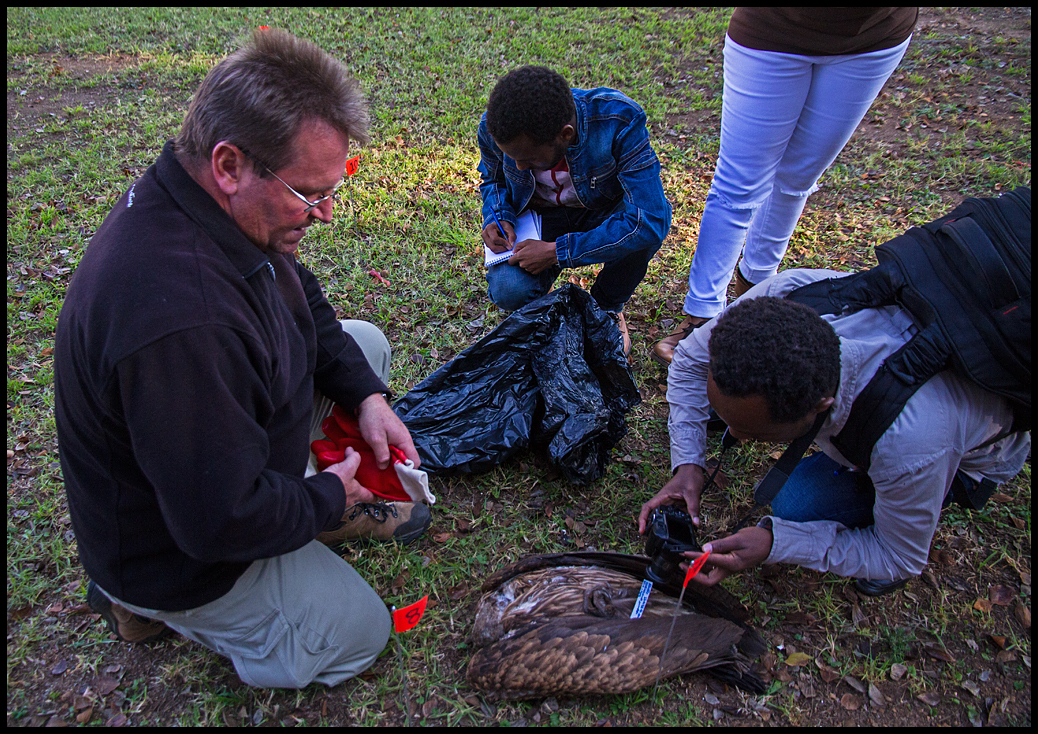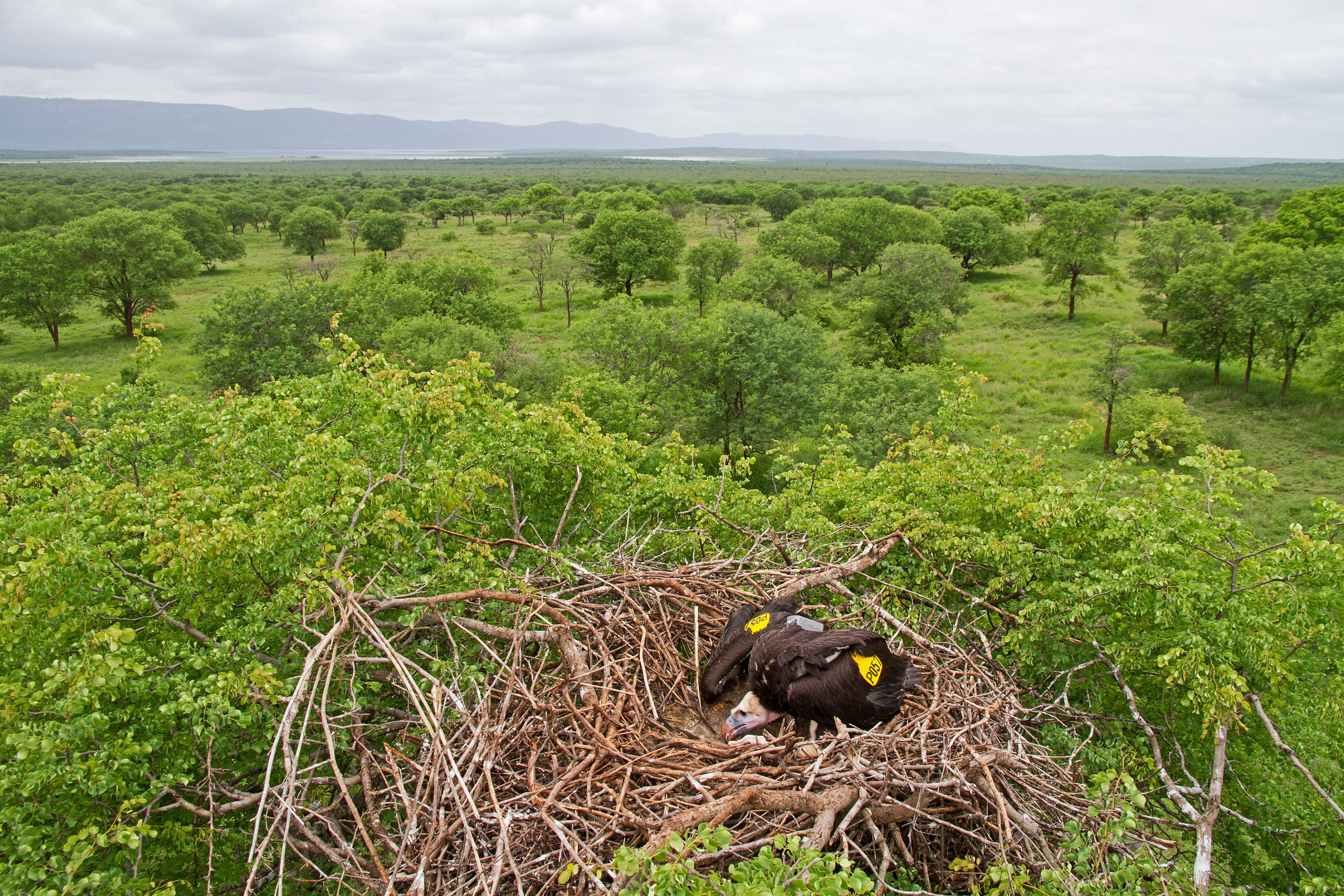
Earlier this year we shared with you in our Owl Message e-newsletter about the plans that we had in place for 2020 overseas conservation and research work: aerial surveys in Kruger National Park; the conclusion of the Hooded Vulture project; new work on Tawny Eagles and ramping up a new project on the Endangered Lappet-faced Vulture. As we all know, 2020 has not turned out as anyone planned and one of the outcomes of this has been the postponement of several project activities until 2021.
However, the Trust is fortunate to have a range of partners on many aspects of our work, and overseas projects are no exception. These partners have meant that some key parts of our work were able to continue in 2020.
The first piece of good news is that the aerial surveys in Kruger National Park will be going ahead as planned. This is important because we need a point of comparison with the first accurate estimates of vulture breeding populations that we generated in 2013. Our project partners the Endangered Wildlife Trust in South Africa have recruited additional survey workers, and along with aerial services provided by The Bateleurs (the ‘flights for conservation’ NGO in South Africa) and full support from South African National Parks (SANParks), the surveys will be done in September. Same as last time, the Trust will set the survey routes, crunch the numbers and run the analysis and reporting. We look forward (with some trepidation and worry about the vultures because of the threat they face from poisoning) to the results later this year, but in the meantime, this is a great example of planning and teamwork overcoming a challenging obstacle.
The other piece of good news is that our vital poison response work and training has been able to carry on. Many of you know our Africa Project Officer Andre Bothá, and he has been very busy since late May. Despite the COVID-19 lockdown in South Africa, he was able to secure a conservation activities permit from SANParks and, with appropriate social distancing, spent two months delivering poison response training sessions to all the fieldstaff in Kruger National Park. That’s over 450 people! An amazing achievement and especially satisfying to have this work completed in one of the most important and valuable areas for vultures in southern Africa. Well done André!
And so these two key parts of our overseas project work will continue despite the challenges, but other parts of our fieldwork overseas have not – and this is to be expected. We cannot under-estimate the financial challenge that COVID-19 presents to the Trust, and although we have reduced costs by curtailing many of our activities, we still need to fund the conservation work that actually can get done. The support of our members, friends, visitors and partners is more important than ever and you can help us continue this vital work by donating to our overseas conservation. Thank you for your continued support.

